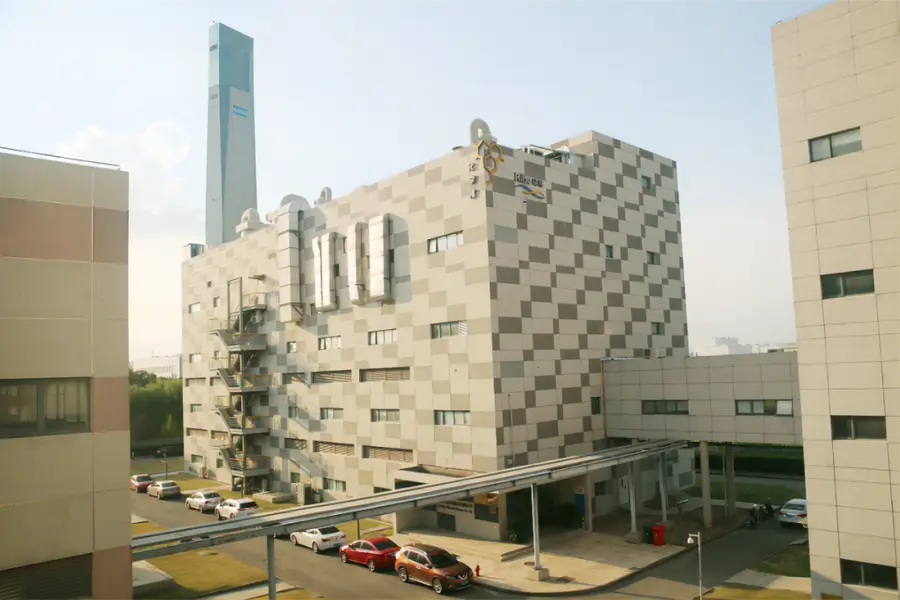RNA drug developer Ribo Life targets fresh funding channel

The biopharma firm has filed for a Hong Kong IPO after already completing eight financing rounds to support its research into cutting-edge nucleotide drugs
Key Takeaways:
- As a pioneer in gene-targeted therapy, Ribo Life has six siRNA candidate drugs undergoing clinical trials
- It previously raised 1.8 billion yuan from industry investors and also derives income from licensing partnerships
By Molly Wen
They have been hailed as a new frontier in pharmacology: chemically synthesized drugs based on nucleic acids in the human genome.
The mRNA vaccines used during the Covid pandemic belong to this high-growth class of drugs, along with emerging treatments that can switch off potentially harmful genes in the battle against cancer. This line of research is proving popular with biopharmaceutical companies, offering the benefits of a short R&D cycle and rapid drug testing process.
Now a Chinese company that has been developing RNA-based nucleotide drugs for 17 years, Suzhou Ribo Life Science Co. Ltd., has filed for a listing on the main board of the Hong Kong Stock Exchange to raise money to accelerate its work.
Ribo Life specializes in therapies using siRNA, or “small interfering RNA”, a technique that blocks the actions of genes implicated in a host of diseases. The company boasts what it calls one of the world’s largest siRNA pipelines, containing six candidate drugs aimed at cardiovascular, metabolic, liver and kidney conditions, four of which have reached Phase Two clinical trials.
RNA acts as a bridge connecting genes and proteins, while chemically modified oligonucleotides help to create drugs with prolonged potency and wide uses. With these advantages, nucleotide medicines have been tipped to become the third major new class of innovative remedies after small molecule and antibody drugs.
The siRNA treatments use modified nucleic acids to treat gene-specific diseases, including conditions lacking any other effective drug options, from rare genetic disorders to chronic diseases and certain cancers. According to research cited in the prospectus, growth in the global oligonucleotide market is expected to accelerate, reaching $46.7 billion in 2033 at a compound annual growth rate (CAGR) of 26.1% over a decade, with siRNA drugs accounting for approximately 40% of the market.
The prospectus describes RBD4059, one of Ribo Life’s core candidate products, as the world’s first and most advanced siRNA drug in clinical development for the treatment of thrombotic diseases that kill more 10 million people a year globally.
The drug is designed to inhibit the formation of blood clots while managing the counter risk of excessive bleeding, with doses needed just every three to six months, offering a superior option to traditional anticoagulant treatments, the prospectus said. The company expects to wrap up the Phase 2a clinical trial for the drug by the end of 2025.
Additionally, Ribo Life has another two key products under development targeting unhealthy levels of fat in the blood stream: RBD5044 for hypertriglyceridemia and RBD7022 for hypercholesterolemia.
Globally, the prevalence of excessive blood lipids in adults is estimated at around 40%, affecting approximately 3 billion individuals each year, the prospectus said. Those with elevated triglycerides or cholesterol, which are significant risk factors for cardiovascular and metabolic diseases, account for more than half of that total, taking the market for lipid-lowering drugs to $20.7 billion in 2023.
Ribo Life’s other key drug, RBD1016, targets chronic hepatitis B and hepatitis D. The company has predicted the product will become a cornerstone therapy for hepatitis B in due course.
Financing treadmill
Despite the clinical potential of nucleotides, researchers must still tackle significant challenges, such as accurately targeting the drugs and avoiding harmful side effects.
Additionally, the synthesis process for nucleic acids can be complex and costly. Hence, only seven siRNA drugs have been approved globally since the first product in the category got the marketing green light in 2018.
Ribo Life does not yet have any products on the market or close to being launched. Without product revenue, the company relies on funding from its backers or income from licensing agreements with drug partners. Its revenues of 44,000 yuan ($6100) in 2023 and 142 million yuan in 2024 were achieved with the help of two large-scale licensing deals.
In December 2023, China’s Qilu Pharmaceutical was granted the rights to develop, manufacture and commercialize Ribo Life’s drug for high cholesterol, RBD7022, in Greater China for more than 700 million yuan in upfront and milestone payments. In the same year, Ribo Life agreed with German pharmaceutical company Boehringer Ingelheim to jointly develop therapies for hepatitis in a deal valued at more than $2 billion.
Still, the costs associated with developing innovative drugs meant the company has been reliant on its financial backers for cash. Ribo Life’s R&D expenses reached 315 million yuan in 2023 and 280 million yuan last year, far exceeding its revenues.
Since completing its Series A financing in 2016, Ribo Life has been constantly in the market for funds, securing investments from the likes of state-backed Advanced Manufacturing Industry Fund and prominent players such as Hillhouse Capital and China Resources Pharmaceutical Industry Fund. All in all, Ribo Life has raised 1.8 billion yuan in eight funding rounds through to Series E, reaching a post-investment valuation of around 4.87 billion yuan after its last financing foray in January this year. However, the valuation dropped to 3.58 billion yuan in February after existing shareholders transferred shares at a low price.
Ribo Life applied to list on Shanghai’s Science and Technology Innovation Board in 2020 but without success. It said the proceeds from a Hong Kong listing would primarily be used to fund research into multiple drug projects and for general corporate purposes.
The company would not be the first siRNA stock to trade on the Hong Kong market. Sirnaomics (2257.HK) claimed that accolade when it listed in late 2021, trading at an initial price of HK$65.90. However, the stock has since plunged to just HK$3 to give a market capitalization of around HK$320 million, far less than Ribo Life’s post-financing value. It remains to be seen whether Ribo Life can win resounding investor support with its multiple pipelines and partnership deals.
To subscribe to Bamboo Works weekly free newsletter, click here





